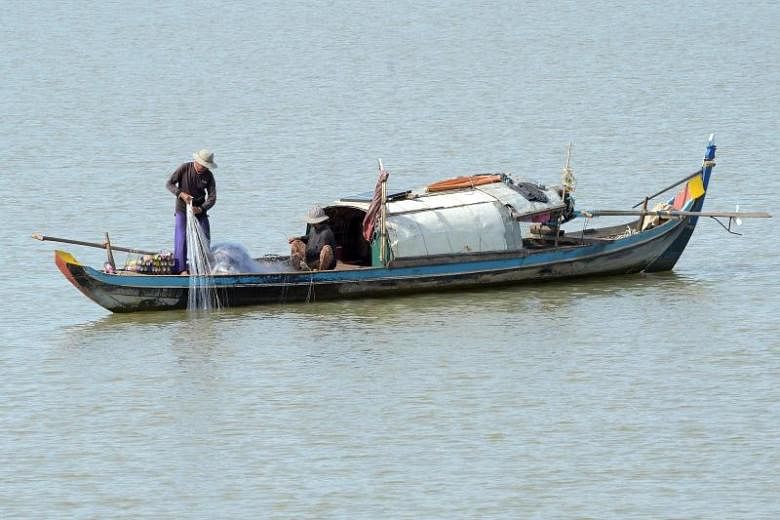BANGKOK - Leaders from the six Mekong River countries have pledged to strengthen cooperation amid growing concern over unsustainable exploitation of the resource-rich waterway.
Speaking at the Lancang Mekong Cooperation leaders' summit in Phnom Penh on Wednesday (Jan 10), Chinese premier Li Keqiang stressed that riparian countries aimed to resolve issues on an equal basis.
Lancang is the Chinese name for the upper reaches of the Mekong River.
"If there is a problem, everybody discusses it together, taking into account one another's comfort levels," he said.
Mr Li added that the Lancang Mekong Cooperation forum would compliment Asean as well as other regional cooperation frameworks.
Earlier yesterday (Wed), the leaders of China, Myanmar, Thailand, Vietnam, Cambodia and Laos endorsed a declaration that would, among other things, promote wide-ranging collaboration on economic development and people-to-people exchanges.
Analysts say at the heart of the issue in Mekong is the threat that the growing number of hydroelectric dams erected upstream pose to the livelihoods and living environments of millions of farmers and fishermen downstream. Not only do the dams affect the water available for irrigation, they disrupt the migration of fish and block the flow of silt downstream that sustains riverine environments.
The Mekong originates in the Tibetan Plateau and flows over 4,000km through southern China, Myanmar, Laos, Thailand, Vietnam and Cambodia before emptying into the sea.
Riparian countries are already part of various coordinating frameworks, the most established being the Mekong River Commission which involves Cambodia, Laos, Thailand and Vietnam. Yet there is no agreement that gives downstream countries the right to review upstream developments that could affect them.
According to United States-based environmental group, International Rivers, China has already built eight dams upstream in the Lancang and is planning 20 more in Yunnan, Qinghai and Tibet. In landlocked Laos, which is eyeing revenue from exporting hydroelectric power, the Xayaburi and Don Sahong dams are under construction.
In October last year, China sent a note to the Mekong River Commission warning of a fluctuation in discharge from its Jinghong reservoir upstream to ensure the security of its power grid. This was given one day in advance.
"If any project has a regional dimension to it, some kind of impact on all six countries, all six countries need to have a say," Mr Pou Sothirak, executive director of the Cambodian Institute for Cooperation and Peace, told The Straits Times.
Already pulling regional economies into its orbit with its ambitious Belt and Road infrastructure plan, China pledged preferential loans of up to 10 billion yuan ($2.05 billion) and credit lines of up to US$10 billion (US$13.3 billion) for projects in the region during the first Lancang Mekong Cooperation leaders' summit in 2016.
Since then, a water resources cooperation centre has been established.
Last December (2017), Cambodia signed an agreement with China that allowed it to receive some US$7 million to fund projects involving sustainable land management, combating illegal fishing and supporting the study of science and technology in China, among other things. Earlier this month (Jan), Laos and China also signed a deal for the funding of Laotian projects under the same framework.
Mr Pou Sothirak said the speed with which initial projects had been implemented had given hope for regional cooperation.
"This is just the beginning," he said. "We have to see if the projects are implemented faithfully, based on mutual respect… so that, overall, the people in the region are the ultimate beneficiaries."



